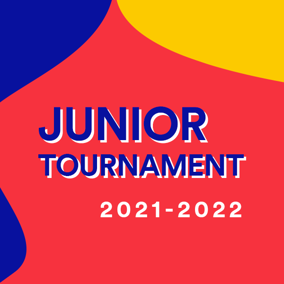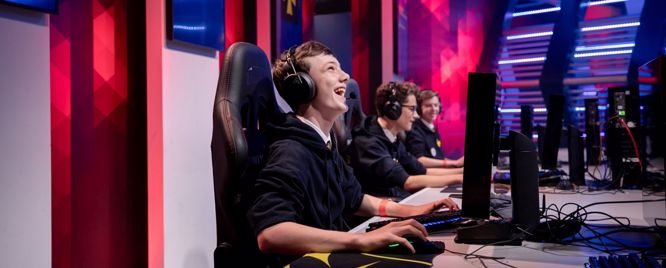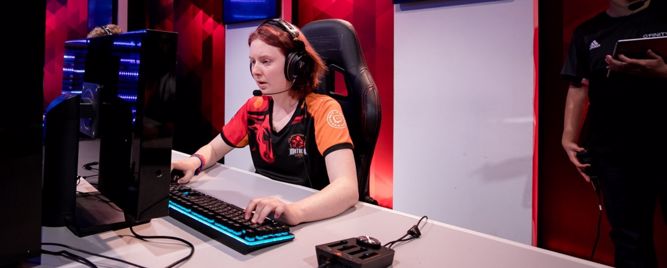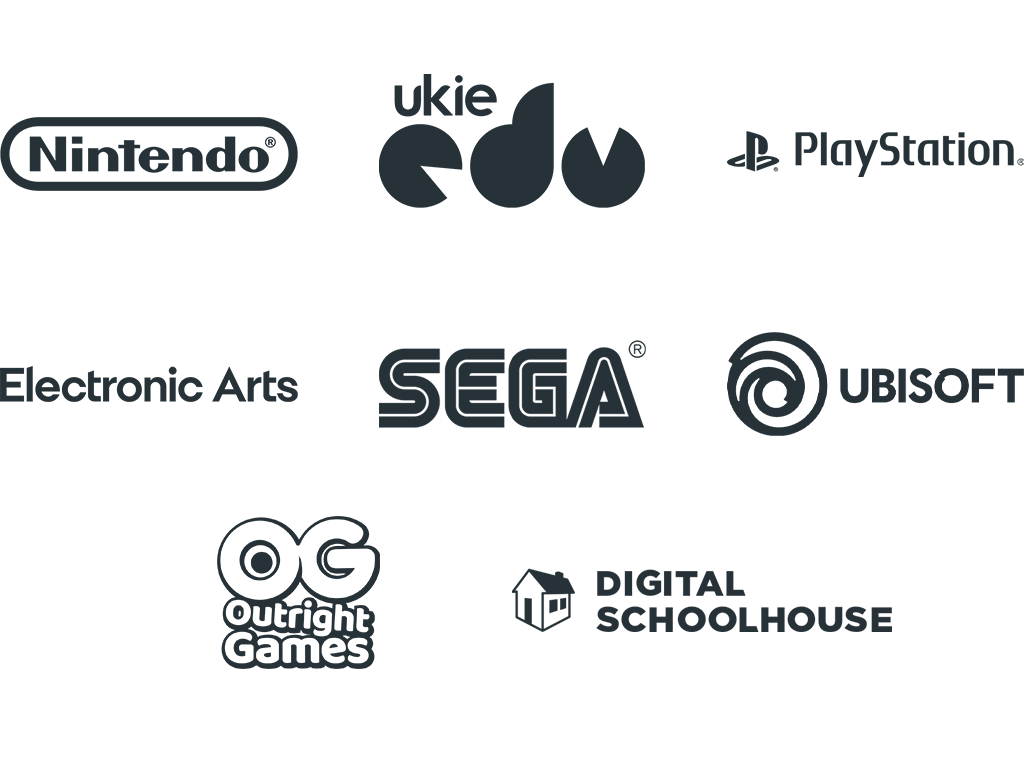
Junior esports, does it work?
Esports has huge benefits when used in the classroom. Whether it is being used as a tool with disengaged teenagers or to excite and inspire young children; the benefits are numerous, obvious, and undeniable.
After the incredible success of our senior tournament our thoughts turned to our more junior learners. Can we introduce this immersive career education to our primary school pupils? Would it have similar benefits?
To help us answer these questions, our partners Outright Games and Nintendo leant their support and expertise to help us get started. As a result, our pilot was able to work extensively with selected schools and trial materials, methodologies and logistics.
We spoke to the teachers as well as the pupils; and gathered feedback through questionnaires and focus group meetings as well as accepting open written statements from teachers. The results are incredible; and can be categorised into areas of: pupil experiences, pupil attainment, attitudes towards careers and attitudes towards computing education.
Read the full Evaluation Report here
Register for the junior tournament
Pupil Experiences
What has become evident is that delivering a scheme of work centred around an esports tournament is a unique approach to teaching not just Computing but also English Literacy, Mathematics, Design and Technology and PSHE. It is this very uniqueness that makes it so engaging and so beneficial to children in school.
Every single teacher reported their pupils as being ‘very’ or ‘extremely’ engaged with the activities. 82% of teachers felt that pupils were more engaged and excited by these activities than usual, when compared to their other lessons. And no teacher felt that pupils were less engaged or excited than usual.
We know that undoubtedly pupils thoroughly enjoyed taking part in the tournament. When asked, on average they rated their enjoyment of the tournament experience as 8 out of 10; with 69% of pupils rating their enjoyment as either 9 or 10 out of 10.
When looking at attitudes across genders; there was generally no significant difference between the two. Girls were just as likely to enjoy the tournament as boys, with no significant differences found for ratings lower than 5 out of 10.
84% of pupils wanted to have more lessons in schools like the esports tournament experience. The feedback was overwhelmingly positive with pupils picking out aspects such as undertaking the job roles, shoutcasting and interacting with their friends along with the gameplay.

I love when I got to play the game I also liked doing all the jobs it was really fun! My favourite job was production crew that was fun but I don’t think I got to do host which I was really looking forward to. I really enjoyed it I wish I did it everyday at school!
Impact on Pupils Academic Achievement
We asked teachers if they noticed a difference in pupils’ academic levels of attainment in the tournament as compared to their usual activities.
36% of teachers reported no notable difference in pupil achievement and 9% of teachers said the work is too different and a comparison could not be made. However, 55% of teachers said that pupils achieved higher results in this work (18% said ‘significantly higher’ when compared to their levels of attainment across their usual activities).
Significantly, no teacher reported their pupil’s attainment was lower than usual.
We asked teachers if there may have been a variation in levels of attainment by gender and 63% of teachers said there was no difference in the academic achievement of boys and girls. 9% said that girls performed better than boys and 27% said that boys performed better than girls.
Pupils clearly recognised the tournament as a learning experience. When asked to select adjectives they’d use to describe their experience; there was a significant association with skills based terms. “Teamwork” ranked the highest at 65% and was closely followed by “Skills” at 60%.
Overall, this is very positive and highly encouraging feedback as it confirms that participation in such tournaments in schools does not have a negative impact on pupils learning and attainment. Through increased engagement, and its unique nature it can in fact help to improve pupil’s academic achievement in school.
Impact on Pupil Attitudes: Careers
Careers education is typically focused around delivery at secondary school and above, and yet primary school teachers tell us that insight into career opportunities is just as valuable for their pupils as well.
Children cannot aspire to careers they do not know exist.
Our tournament raises awareness of such opportunities and enables children to try out first-hand what these jobs entail. The tournament had a significant impact on improving awareness and knowledge of job opportunities within the sector, particularly amongst the girls. Overall, we saw a 40% increase in the number of girls who now feel they know at least a little bit about job opportunities (94%); compared to a 10% increase for boys (92%).
And the teachers agree. 45% of teachers reported that prior to participation in the pilot, pupils were either unaware of career opportunities within the video games and esports industry, and only 36% were ‘very’ or ‘extremely’ interested. Interest levels as a result of participation have tripled; with 91% of teachers saying their children were now either ‘very’ or ‘extremely’ interested.
It was a fun experience that everyone appeared to enjoy with or without the competitive part of the games. It also teaches us that gaming is a job rather than a hobby and is for everyone no matter how skilled to enjoy.
Impact on Pupil Attitudes: Computing
We asked teachers “Has the pilot made an impact on the motivation of your pupils to learn computing?”. 100% of teachers reported that pupils were more motivated to learn computing because of the pilot; and of these, 55% of teachers reported that pupils were significantly more motivated.
When asked to rate how they felt about computing education after the tournament the average rating given by pupils was 8 out of 10. Overall 96% of pupils gave a rating of 5 and over; indicating a significantly strong level of enjoyment and interest in the subject.
“It was one of the most fun things I have ever done in school, and I would definitely suggest other schools to do it.”
Esports tournaments such as the ones delivered by Digital Schoolhouse can play a vital role in education. The curriculum-mapped resources enable the teaching of core subjects such as computing, english and maths as well social skills. They are a tool that uniquely brings together rigorous academia, alongside the development of soft skills, critical and creative thinking as well as sparking an interest for lifelong learning.
Register for the junior tournament
Register for the Super Smash Bros. Ultimate Team Battle




